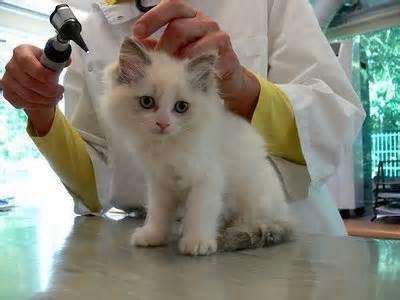
MyNorthwest.com: Dr. Christine Wilford says she became a veterinarian to take care of animals, not rat on their owners. She says that’s exactly what a proposal to help increase revenues for Regional Animal Services of King County (RASKC) would make her do.
The proposal, currently being discussed with the King County Council and executive, would require veterinarians to report their clients’ rabies vaccination records to the county, which would use the information to get more people to license their pets.
“The veterinarians that I’ve talked to and the veterinarians on our board of directors are all concerned that we’re basically becoming police,” says Wilford, the president of the Puget Sound Veterinary Medical Association. “That’s not our job. We don’t feel like it’s in the best interest of the animal care. It certainly undermines our intimate relationship with our clients. They trust us.”
While county law requires all dogs and cats eight weeks old and older to be licensed and registered, only an estimated 26 percent of dogs and 12 percent of cats are currently licensed, according to Regional Animal Services of King County manager Dr. Gene Mueller. Licenses cost $30 per year for altered pets, $60 for unaltered. The fine is $125 for altered pets, $250 for unaltered.
RASKC provides animal control, shelter and licensing services for 25 contract cities and unincorporated King County under a new model that absorbed several dozen individual organizations. While King County currently provides a $1.8 million subsidy annually – about one-quarter of RASKC’s $6.5 million cost – the agency is tasked with substantially reducing the amount it gets from the general fund.
“We’re concerned that if we can’t continue to grow our pet licensing, that the model may actually break apart when we come up for renewal as we go into contract discussions,” says Mueller.
But Wilford says that’s not a veterinarian’s problem. Along with worries about damage to the doctor-client relationship, Wilford says many are concerned people will stop getting rabies vaccinations.
“It’s not my job. I took a job to improve the health of pets and the family and shouldn’t have to waste time informing clients of the pet licensing law,” she says. “The first question is going to be ‘what if I don’t vaccinate for rabies, do you have to turn my name in?’ And I would answer that ‘no I don’t.’ And you’d say ‘okay let’s not do the rabies vaccine.’”
Veterinarians also worry clients who want rabies vaccines will go “across the border” to Pierce or Snohomish County, or to mobile parking lot clinics that only provide vaccines. That would hurt their bottom line in both the short term, and possibly cost them clients for good.
The proposal is not unique. A number of other states and cities have adopted mandatory vaccination reporting to increase pet licensing.
New Hampshire has a licensing rate of 55 percent, while San Jose, Ca. saw a near doubling of its licensing rate to 30 percent after requiring vets to report rabies vaccinations, according to Mueller. And he says there’s no data that says vaccination rates declined as a result of the reporting.
“Going from 20 percent to 30 percent for us is over $1 million dollars that can be added to animal care.”
Mueller says the revenue is vital to providing the RASKC’s critical services, including a revamped shelter program that has seen a nearly 85 percent success rate in finding new homes for animals.
“This is, in my opinion, good public policy. It is a way to provide resources for animal services. It is not just giving government employees work to do,” he says.
The proposal is just one of many under consideration to help fund RASKC. While many veterinarians oppose any reporting requirement, Wilford says they’re willing to work with the county to reach some common ground. She suggests RASKC start with a voluntary program.
“Why don’t we at least start with encouraging veterinarians to discuss licensing, spread the word, help people understand how to do it and that it is required. I think a lot of people don’t even know they need to have a pet license.”
Mueller, a veterinarian with over 25 years experience, says he’s sensitive to the needs and concerns and hopes to come up with a compromise that works for everyone.
“Let’s have this dialog where we can work together,” he says. “We didn’t run this past anybody or try and sneak this past anybody. We’re fully engaged in wanting to talk about this and are there ways that we can mitigate some of the concerns or some of the administrative imposition.”
The Washington State Veterinary Association is formally opposing the proposal and urging the King County Council to reject it.
“We don’t want to be the tax collector. We don’t want to be the police,” says Wilford.
So King County wants you to license your pet? The City of Seattle, the largest city in King County, is a sanctuary city. The Seattle Police are not required to check the ID of illegals. And King County is considering a proposal where they would be first in state to stop cooperating with feds on illegal criminals.
If King County Animal Services comes knocking on your door, tell them your pets are illegals. That should do the trick

DCG

